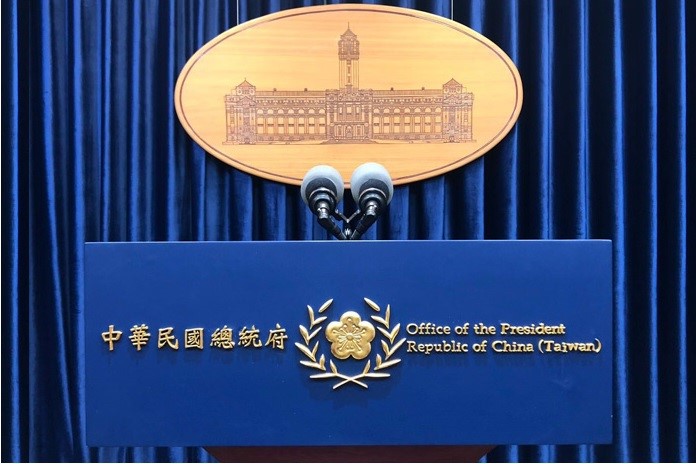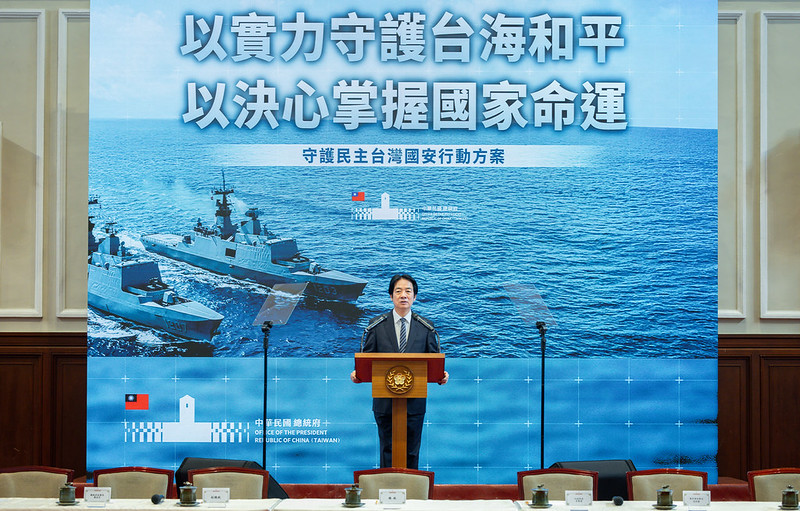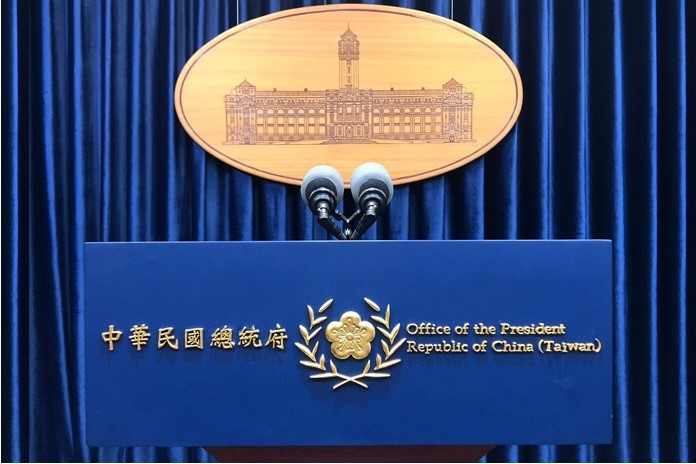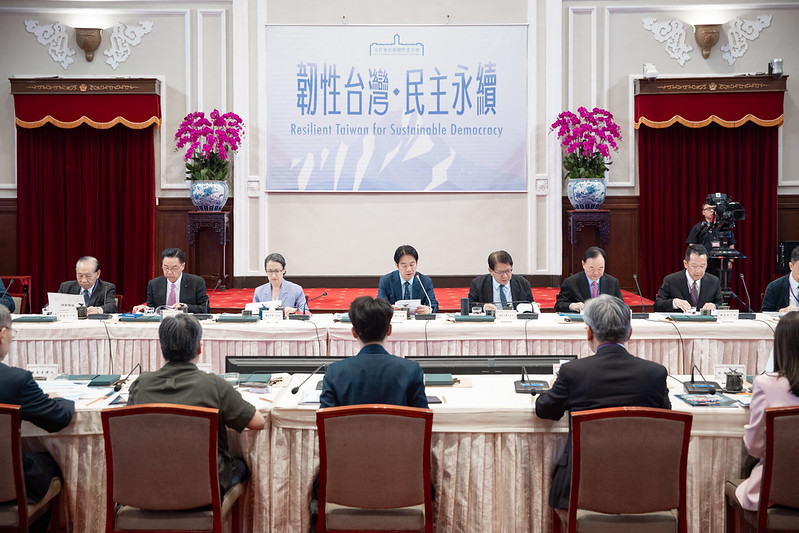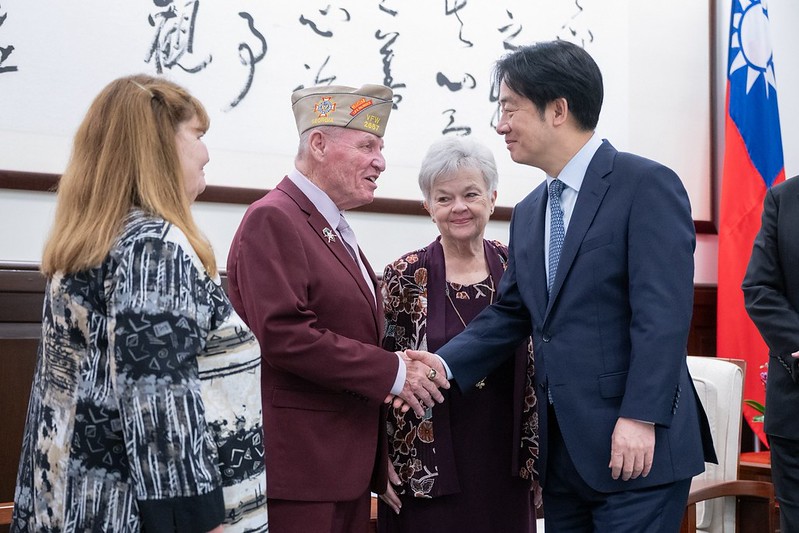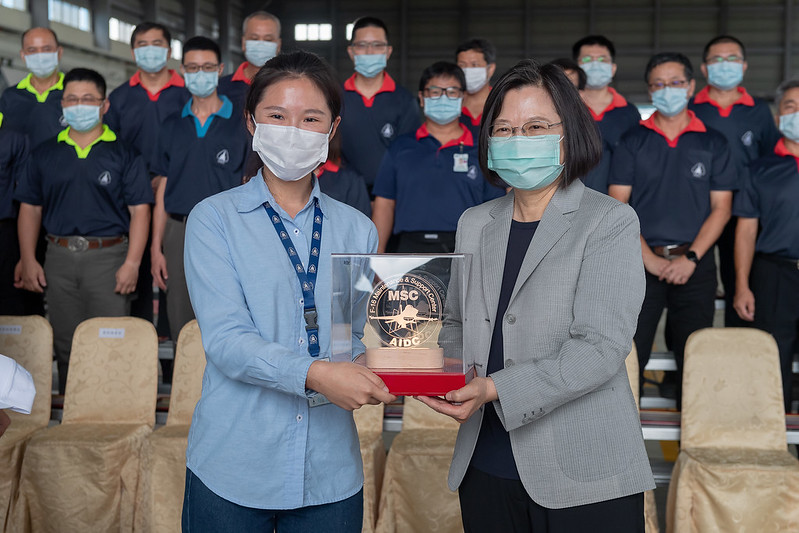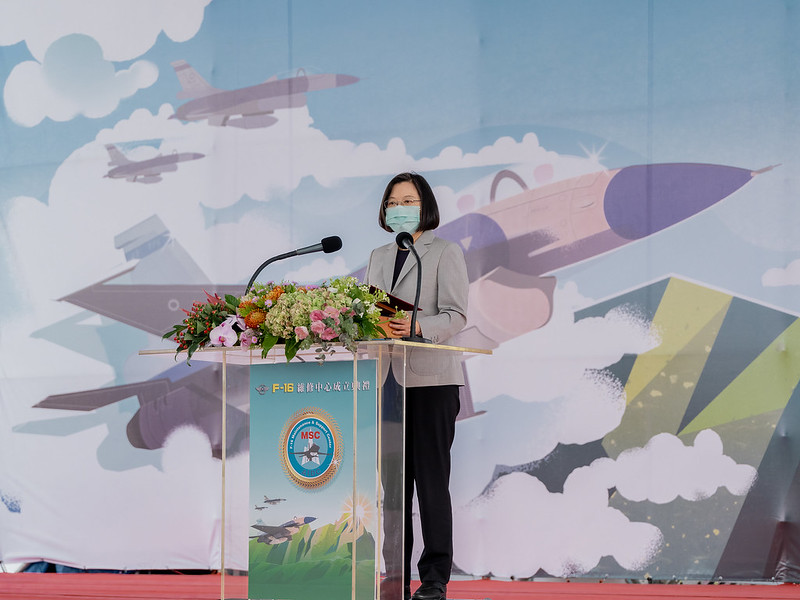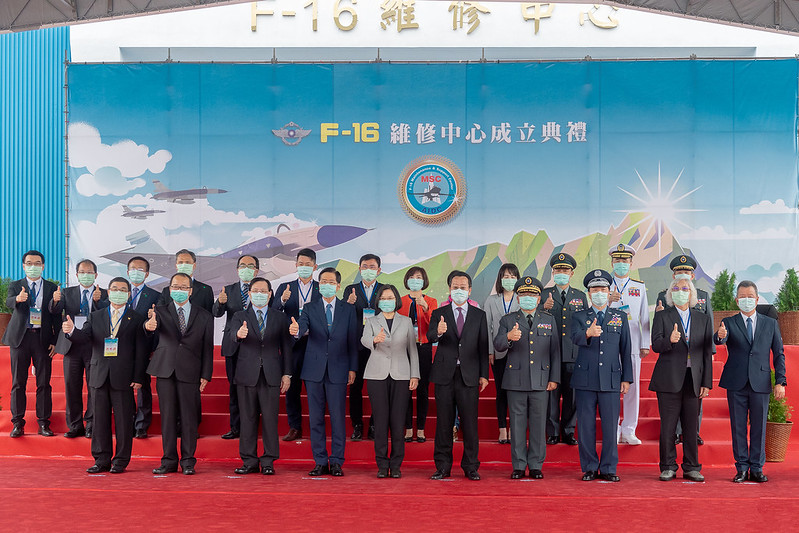News & activities
 News releases
News releases
President Tsai Ing-wen attended the inauguration of the F-16 maintenance center in Taichung on the morning of August 28. In remarks, the president stated that to defend the sovereignty of the Republic of China (Taiwan) and maintain regional peace and stability, we cannot bow to pressure and must have strong national defense capabilities. This new maintenance center, she said, will significantly reduce maintenance time and increase fighter jet availability, ensuring air superiority on the front line of national defense. She expressed confidence that more participation by more companies will help strengthen our self-defense capabilities and upgrade our aerospace industry technologies, enhancing Taiwan's status in international aerospace supply chains.
A translation of the president's remarks follows:
The inauguration of this F-16 maintenance center today will help strengthen our air force combat capabilities, and is also an important milestone in developing our national defense industries, spurring the internationalization of Taiwan's aerospace industries. I am delighted to see that everyone has come to Aerospace Industrial Development Corporation (AIDC) to witness this important moment together.
As I have said before, to defend the sovereignty of the Republic of China (Taiwan) and maintain regional peace and stability, we cannot bow to pressure and must have strong national defense capabilities. This new maintenance center will significantly reduce maintenance time and increase fighter jet availability, ensuring air superiority on the front line of national defense.
Over the past four years, we have faced many challenges while promoting our national defense industries and self-defense capabilities. But to ensure national security, we have persevered and kept moving forward.
The launch and implementation of our indigenous submarine program, acceleration of the F-16 reconfiguration project, the inaugural flight of our first Brave Eagle advanced jet trainer, and the inauguration of this F-16 maintenance center all prove that we are on the right track.
Promoting our national defense industries is the cornerstone of Taiwan's national defense and upgrades our military capabilities. Promoting national defense industries also shows Taiwan's resolve, so the whole world can see our determination to defend our national territory.
As I have often said, "Peace depends on national defense." But that's not all. What we need now is to use national defense efforts to spur industrial development. Overall industrial development requires setting up industry chains and successful technology transfers, which will also develop more technical personnel. And these things will all help Taiwan prosper.
Last August when I visited the F-16 reconfiguration project at AIDC to exchange ideas with our friends from Lockheed Martin, they said that we had the best team in the world. And the inauguration of our F-16 maintenance center today is the best possible tribute to Taiwan's aerospace industries.
Establishing this maintenance center will unleash tremendous potential, and our first priority is to allow domestic vendors to develop maintenance capabilities. Over the next 30 years, output value should be about NT$79.5 billion, creating over 600 job opportunities per year and overall industry benefits of up to NT$200 billion.
In the future, the center will also employ a certain proportion of retired air force maintenance and repair personnel, so they can apply the expertise and experience acquired during military service. Through military-civilian cooperation, their skills will also contribute to the development of our national defense industries.
I heard that during the investment briefing early this month, over 100 vendors expressed interest in participating in the production and maintenance functions.
I have also directed the Ministry of Economic Affairs, Ministry of National Defense, and AIDC to hold regular investment briefings to give domestic businesses more opportunities to participate in the maintenance center and increase their willingness to do so.
I am sure that more participation by more companies will help strengthen our self-defense capabilities and upgrade our aerospace industry technologies. That, in turn, will enhance Taiwan's status in international aerospace supply chains.
I also want to ask our friends from Lockheed Martin to help Taiwan vendors to obtain international certification. Working together, we can both open up new opportunities for future international cooperation.
In closing, I would like to thank Vice Premier Shen Jong-chin (沈榮津) for supervising this project. By integrating efforts by the Ministry of National Defense, Ministry of Economic Affairs, and AIDC, close government-private sector cooperation has helped us assemble a national team for our F-16 maintenance center.
I would also like to give a special thanks to all of the engineers, scientists, and vendors who have worked with the government to promote national defense industries. These achievements belong not to the government, but to all of you, so I really want to thank you. In the future, government efforts to promote the national defense aviation industry will still need your support. Let's continue to work together to upgrade our national self-defense capabilities and industry.
After delivering remarks, President Tsai, accompanied by AIDC Chairman Hu Kai-hung (胡開宏), visited AIDC's maintenance hangars, listened to an introduction about F-16 components and assembly lines, and witnessed the presentation of certificates to specialist personnel.
Among those present at the event were National Security Council Secretary-General Wellington Koo (顧立雄), Minister of National Defense Yen Teh-fa (嚴德發), Vice Minister of Economic Affairs Lin Chuan-neng (林全能), and Lockheed Martin Program Director Paul Scott.
